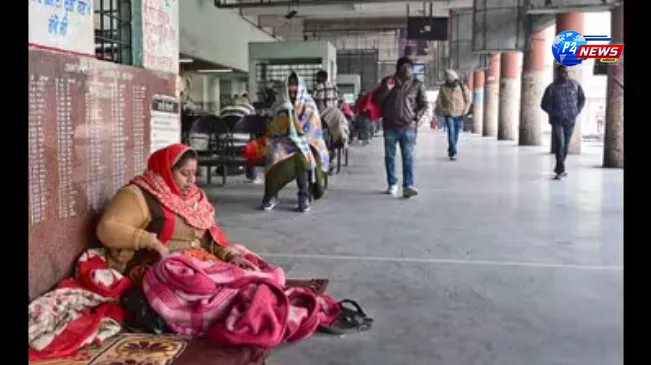The bandh led to major disruptions in Ludhiana, affecting 70 routes as 600 state buses, 150 from other states, and 950 private vehicles remained off the roads. This halt followed the Punjab Roadways/Punbus/PRTC contract workers' union backing the farmers' protest.
The Ludhiana bus stand, typically a hive of activity, witnessed an unusual stillness on Monday as over 1,700 buses, encompassing both state-run and private services, suspended operations in a show of support for the farmers' Punjab Bandh. This abrupt cessation left numerous travelers stranded in the frigid temperatures, grappling with the unexpected disruption to their plans.
The strike significantly impacted around 70 routes, with a notable absence of 600 state-operated buses, 150 from neighboring states, and nearly 950 private vehicles on the roads within Ludhiana. The standstill was triggered after the union representing Punjab Roadways, Punbus, and PRTC contractual workers expressed their backing for the farmers' movement on Saturday, affirming the legitimacy of the farmers' grievances. Although it was initially indicated that operations would halt only from 10 am until 2 pm, the cancellation of services began as early as 7 am on Monday morning.
The plight of passengers was palpable as many were left with no recourse. Dharmendra Kumar, a traveler en route to Delhi, lamented, “I was looking forward to ringing in the New Year with my friends. I have been waiting for a bus since 6:30 am, but now I may have to return home. The cold is unbearable, and there appears to be no sign of services resuming soon.”
Others shared similarly distressing stories. Amandeep, eager to visit a gravely ill friend in Patiala, expressed his dismay, stating, “I never anticipated such complications when I came here on Sunday. Now I find myself stuck with no options.” Kirandeep, who needed to return home for her father's last rites, added, “I desperately need to get home, but I'm left waiting here, helpless, as my family anxiously awaits my arrival.”
Aarti, a single mother traveling from Manali with her two young children, also revealed her difficulties. “I was aiming to visit family in Ambala, but since 7 am I have been stranded here, uncertain when the buses might begin operations again. My primary concern is for my children, as the cold is severe, and I worry they may become ill.”
The disruption compelled many passengers to turn to private taxi services, which took the opportunity to significantly inflate their fares, increasing costs by ₹1,000 to ₹1,500 on all key routes. For instance, the fare from Ludhiana to Delhi, normally around ₹2,300, surged to ₹5,000, while the price to Chandigarh jumped from ₹1,200 to ₹2,500.
Shamsher Singh, the general secretary of the transportation workers' union, expressed solidarity with the farmers while sharing their experiences at the Laddowal toll plaza, where demonstrations had brought together over a hundred members. He criticized the government’s indifference towards the farmers' demands and highlighted the concerning condition of Jagjit Singh Dallewal, a farmer leader who has been on a hunger strike for an impressive 35 days.
Another union member, Satnam Singh, called upon the authorities to address the ongoing issues of both farmers and transport workers to diffuse tensions and stave off further protests.
On a financial note, Navraj Batish, the general manager of Punjab Roadways, disclosed that the Ludhiana bus stand serves around 150,000 passengers daily. The shutdown on Monday resulted in an estimated revenue deficit of ₹3.25 lakh for the Ludhiana bus depot, which included ₹1.75 lakh lost from bus operations and ₹1.5 lakh from adda fees, indicative of the considerable economic impact of such a widespread strike.
It's worth noting that the Punjab Bandh was orchestrated by farmers to amplify their demands for a legal assurance of Minimum Support Price (MSP) for their produce, underscoring the critical nature of the issues at hand.
















Comments 0